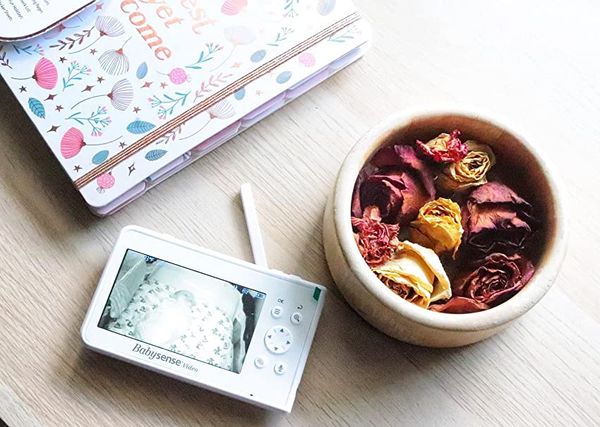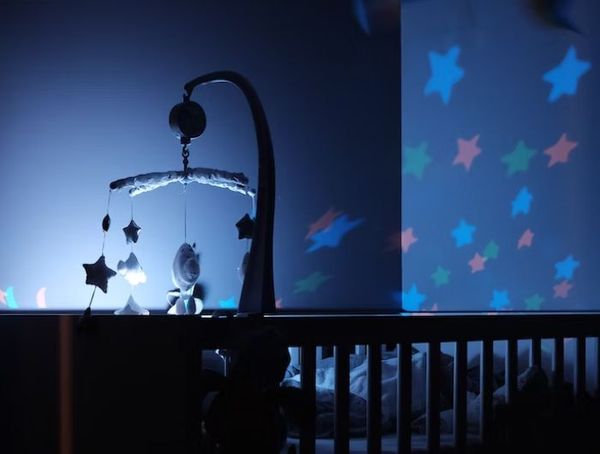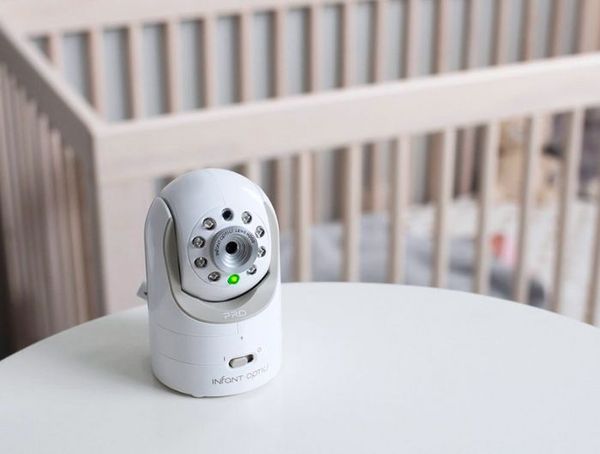A good bedtime routine can help your baby fall asleep faster, stay asleep longer, and wake up happier. But what if your baby falls asleep before bedtime? Is that a problem? And what can you do to prevent it?
In this blog post, we will answer these questions and give you some tips on how to deal with a sleeping baby who is not ready for bed. We will also share some of our personal experiences and how we use our WIFI baby monitor to keep an eye on our little ones.
Why Does Baby Fall Asleep Before Bedtime?
There are many reasons why your baby might fall asleep before bedtime.
Overtired
This happens when your baby has been awake for too long and has accumulated too much sleep debt. When this happens, your baby may fall asleep at any time, even if it is not close to bedtime. Overtired babies also tend to have more trouble falling asleep and staying asleep at night, and may wake up more often and cry more.
Under-stimulated
This means that your baby has not had enough physical and mental activity during the day. When this happens, your baby may get bored and sleepy, and may fall asleep before bedtime. Under-stimulated babies also tend to have less deep and restful night sleep, and may wake up more easily and be more fussy.
Going through a growth spurt or a developmental leap
Your baby is growing rapidly or learning new skills, such as rolling over, crawling, or walking. When this happens, your baby may need more sleep than usual, and may fall asleep before bedtime. Growth spurts and developmental leaps also tend to disrupt the normal sleep patterns of babies, and may cause them to wake up more often and be more clingy.
How To Prevent Baby From Falling Asleep Before Bedtime?
The best way to prevent your baby from falling asleep before bedtime is to establish a good sleep schedule and a consistent bedtime routine. Here are some tips on how to do that:
Follow your baby's cues
Every baby is different, and so is their sleep schedule. Some babies need more daytime sleep than others, and some babies need an earlier or later bedtime than others. The key is to observe your baby's cues and adjust accordingly. Look for signs of sleepiness, such as rubbing eyes, yawning, fussing, or losing interest in toys. These are indicators that your baby is ready for a nap or bedtime.
Regular nap schedule
Naps are essential for your baby's daytime sleep and overall development. They help your baby recharge their energy, regulate their mood, and consolidate their memory. Ideally, your baby should have two or three naps per day, depending on their age and needs.
The first nap should be in the morning, about two hours after waking up. The second one should be in the afternoon, about three hours after the first nap. The third and last nap (if needed) should be in the early evening, about four hours after the afternoon nap. Avoid letting your baby have a late nap, as this can interfere with their nighttime sleep.
Consistent bedtime routine
A bedtime routine is a series of activities that you do with your baby every night before bed. It helps your baby wind down from the day, relax their body and mind, and signal that it is time to sleep.
A good bedtime routine should be simple, soothing, and predictable. It can include things like bathing, changing into pajamas, reading a book, singing a lullaby, or cuddling. The key is to do the same things in the same order every night, so that your baby knows what to expect and feels secure.
Early bedtime
Contrary to popular belief, putting your baby to bed later does not make them sleep longer or better at night. In fact, it can have the opposite effect. When your baby is overtired, they produce more cortisol (a stress hormone) and less melatonin (a sleep hormone), which makes it harder for them to fall asleep and stay asleep at night.
On the other hand, when your baby goes to bed earlier (before they get overtired), they produce less cortisol and more melatonin, which makes it easier for them to fall asleep and stay asleep at night. The optimal bedtime for most babies is between 6:00 pm and 8:00 pm.
How To Use A Baby Monitor To Help Your Baby Sleep Better?
A baby monitor is a device that allows you to see and hear your baby from another room. It can be very helpful for monitoring your baby's sleep patterns and ensuring their safety and comfort.
One of the best features of a WIFI baby monitor is that you can access it from anywhere using your smartphone or tablet. This means that you can check on your baby without disturbing them or leaving your bed.
Here are some ways that we use our WIFI baby monitor to help our baby sleep better:
We use it to track our baby's sleep cycles. We can see when our baby falls asleep, when they enter deep sleep or light sleep, when they wake up briefly or fully, and when they are ready to get up for the day. This helps us understand our baby's sleep needs better and establish good sleep habits.
We also use it to soothe our baby remotely. We can talk to our baby through the monitor's speaker or play some white noise or music from the monitor's app. This helps us calm our baby down if they are crying or restless without having to go into their room.
We use it to intervene when necessary. We can see if our baby is in distress or danger (such as rolling over onto their stomach or getting tangled in their blanket) and go into their room to help them if needed.
Seek Professional Help if Needed
If you've tried everything and your baby is still consistently falling asleep before bedtime, it might be time to seek professional help. A pediatric sleep consultant can work with you to create a customized sleep plan that addresses your baby's unique needs and helps them develop healthy sleep habits.
Conclusion
Having a tired baby who falls asleep before bedtime can be frustrating and confusing for parents. However, by following these tips on how to prevent it from happening and how to use a WIFI baby monitor to help your baby sleep better, you can make sure that your baby gets enough quality sleep every night.
We hope you found this blog post helpful and informative. If you did, please share it with other parents who might benefit from it.
Thank you for reading Mother Bear Reviews, your favorite parenting blog!









